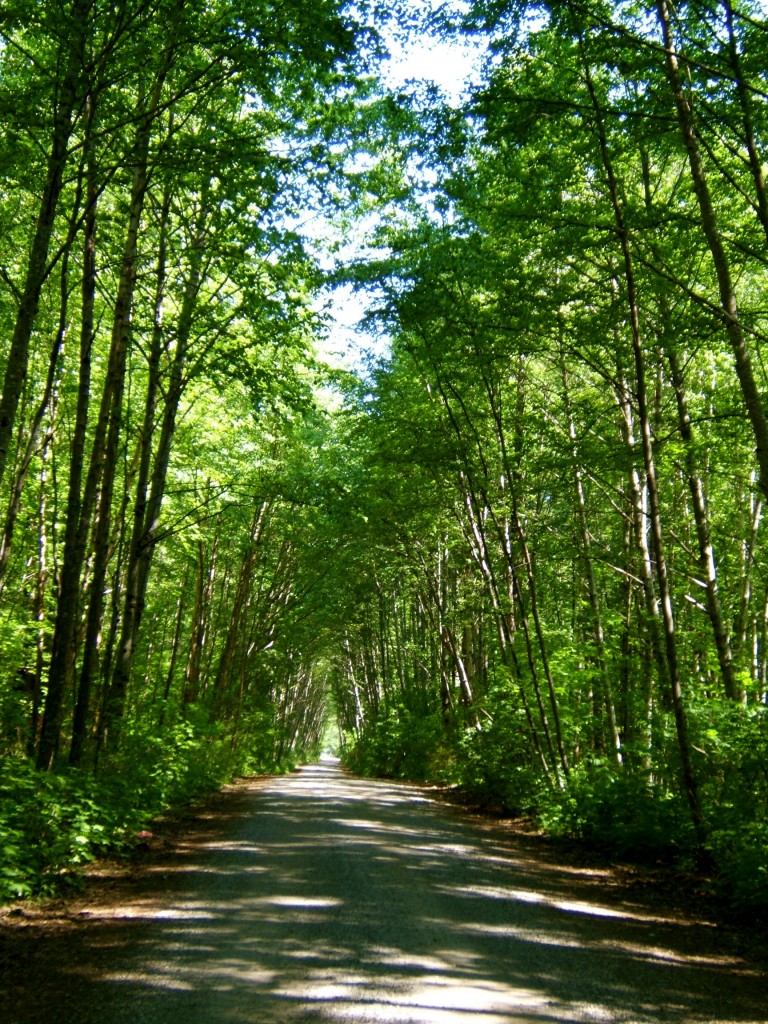What is wilderness and what is it doing in poetry?
BY Sina Queyras

“Wilderness. So overwritten it should probably be granted a reprieve from definition, maybe even a lengthy sabbatical from speech.” So the poet Don McKay writes in The Muskwa Assemblage. McKay is one of a handful of Canadian poets known for their intense connection with both philosophy and nature, or the land, or the thinking and singing of the land. I am intrigued by the writing of this group: Tim Lilburn, Robert Bringhurst, Jan Zwicky and Dennis Lee, all of whom have written about their complicated relationship to wilderness, and nature, both in their poetry and in the essay form. I’ll try to touch on each of these poets over the next month, and also on an anthology of poetry (that includes an excerpt from McKay), and brings some of these more contemplative lyric voices together with less traditional ways of covering similar terrain.
I wonder what we think of when we think “nature” or “wild?” So does McKay: “Uninhabited? There is, says Simone Weil, an impersonal part of the soul. I think something like that part must be the place where wilderness resonates, where we sense ourselves to be, not masters of creation, not technological wunderkinds, but beings among begins…” Of course I find it hard to rid my mind of technology given that what is recorded, what we know, is largely due to technologies. We are inseparable. But I like to hear McKay's musings on the matter for these questions remain just that for me, questions.
Edward Burtynsky’s photographic practice began the moment he realized that for every upward extension in the human world there must be a depression, and so on. He has made a career out of working backward from moments of witnessing, tracing the materiality of our products, from computer chips to oil. This tracing is fascinating. Finding the edges, where the seams are: bits of wild peak out amid cloverleaf’s and the sawed off ends of parking lots where the wolves prowl. The extreme shifts are instructive: parachuting from New York, or Toronto, or Montreal to a small lake in the Ottawa Valley, or to Botanical Beach, or the banks of the Skeena, one of the last great untapped rivers in North America, and now threatened by one of several plans for pipelines and other energy projects that will drastically change that last bit of "wild."
On the other hand, walking in Ferry Island, a small island park in the middle of The Skeena river and in the town of Terrace, one realizes that the gorgeous trees one is walking in are all planted by human hands. Like so much of the area, the island was logged a hundred or so years ago. Human hands ordered the forest, as we see above, and put in the road to the park. Human presence is embedded in the trees, in the paths, on the rocks. And traces of the wild mark the deep city. Here is a bit from Lisa Robertson’s “Fourth Walk,” from the Office for Soft Architecture:
The sky over the defunct light-industrial district was still the sky, less sublime, but more articulate. And walking what we witnessed was, like a flickering appetite, the real end of sunlight, buildings torn out of the earth and forgotten, the superabundant likenesses of pictured products collapsed into our dream and over and over in the dark the flickering appetite now bunched under the ribs. We were partly in another place. It’s hard not to disappear. I pondered this ritual of crisis and form as my guide and I walked the unprofitable time of the city, the pools of slowness, the lost parts…(91)
Where is the uninhabited? The lonely industrial parks? The arctic? I try to come to terms with place, and of the ‘appropriate’ subjects for poetry, particularly for what we think of as nature, or eco-critical poetry. For Robertson, the city is pastoral. Filled with beauty and possibility. Filled with tensions too, strange juxtapositions, a blank canvas for thinking, and a catalog of evidence for gathering. A place where human drama plays out and accumulates in layers, one over the other. (Thinking here of Jean Luc Nancy's densely intriguing The Creation of the World or Globalization, where he suggests that the world has lost its ability to form world rather it has gained instead the capacity of proliferating...)
So what does poetry yearn for? Imagine you had a land, and then you lost it: that is pastoral, as Robertson reminds us. It’s a simple gesture. We want things the way they were: untouched. We want to elude human presence, but of course we take us with ourselves wherever we go. What is wild? Do you have examples of wilderness rendered in contemporary poetry? How does the notion of wild play out for you?
Sina Queyras grew up on the road in western Canada and has since lived in Vancouver, Toronto, Montreal...
Read Full Biography

